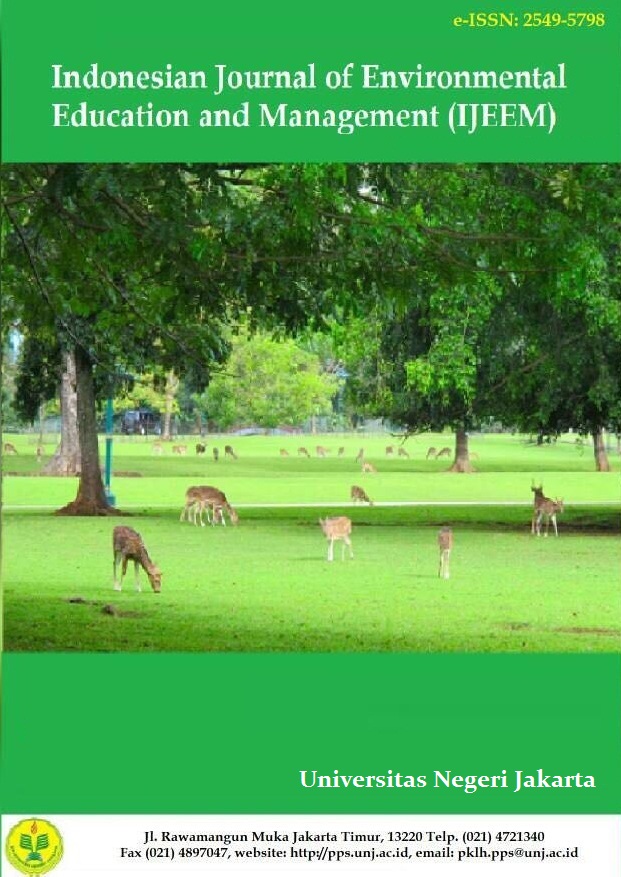The Effect of Environmental Leadership and Head Of Villages’ Knowledge About Conservation On Their Ability In Managing Environment
Abstract
The research is aimed at finding out the information about the effect of environmental leadership and head of villages’ knowledge about conservation on their ability in managing environment. An expost facto method has been applied by involving n = 250 of heads of village in Nusa Tenggara Timur Province. Design of this research was 2 x 2 factorial design. Data has been analyzed by applying two-way ANOVA. The research result reveal that there is environmental management ability difference between heads of village with transformational leadership style and transactional leadership style. There is high ability in managing environment in the group of head of village who have high knowledge about conservation and transformational leadership style rather than transactional leadership style. There is low ability in managing environment in the group of head of village who have low knowledge about conservation and transactional leadership style rather than transformational leadership style. It is found that there is a significant interaction effect between environmental leadership and head of villages’ knowledge about conservation on their ability in managing environment. It could be concluded that if ability in managing environment could be improved, environmental leadership could be enhanced by considering knowledge about conservation. It doesn’t guarantee that the transformational leadership style would be able to improve heads of village ability in managing environment, however it depends on their knowledge about conservation as well.





